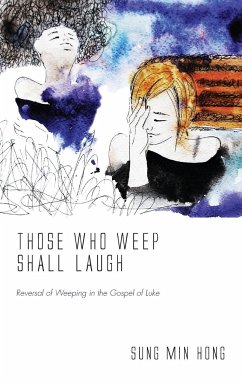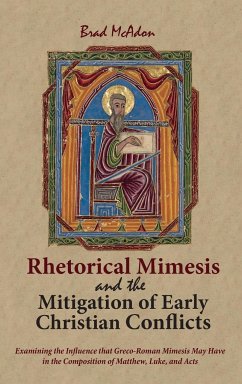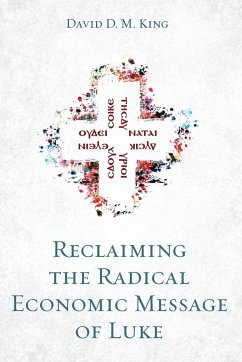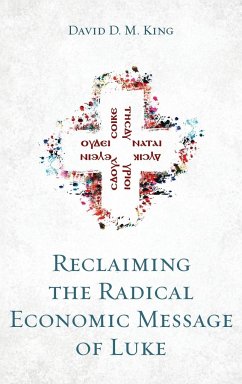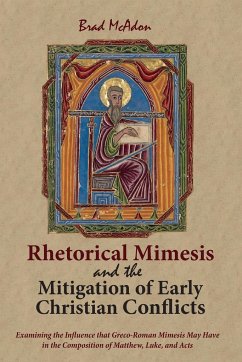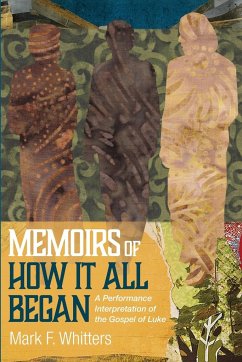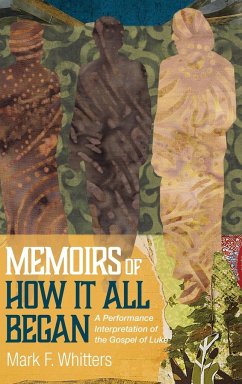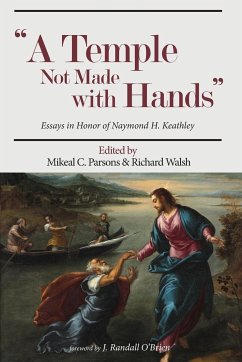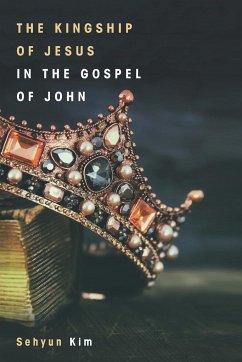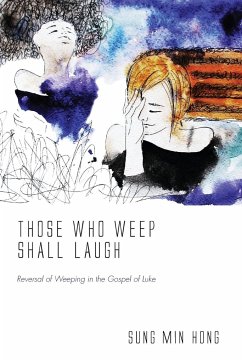
Those Who Weep Shall Laugh
Versandkostenfrei!
Versandfertig in 1-2 Wochen
21,99 €
inkl. MwSt.
Weitere Ausgaben:

PAYBACK Punkte
11 °P sammeln!
The purpose of this study is to identify and develop appreciation for the theme of the reversal of weeping in Luke's gospel. Lukan scholarship has not fully recognized the reversal of weeping as a distinctive theme. By understanding Luke's third beatitude (6:21b) and third woe (6:25b) as two pegs on which the theme of the reversal of weeping is hung, it proposes that the reversal of weeping is a distinctive theme in Luke. In doing so, Luke repetitively uses ¿¿¿¿¿ to highlight the theme. This technique of Leitwort leads readers to focus on the reversal of weeping more effectively. Luke's p...
The purpose of this study is to identify and develop appreciation for the theme of the reversal of weeping in Luke's gospel. Lukan scholarship has not fully recognized the reversal of weeping as a distinctive theme. By understanding Luke's third beatitude (6:21b) and third woe (6:25b) as two pegs on which the theme of the reversal of weeping is hung, it proposes that the reversal of weeping is a distinctive theme in Luke. In doing so, Luke repetitively uses ¿¿¿¿¿ to highlight the theme. This technique of Leitwort leads readers to focus on the reversal of weeping more effectively. Luke's presentation of the reversal of weeping is not limited to identifying it as a distinctive theme. There are narrative intentions and theological implications that Luke also targets. First, Luke wants to demonstrate concern for marginalized groups in society. He also shows how their fortunes are reversed by Jesus. Second, Luke portrays Jesus as the promised prophet, describing him as like Elijah and Jeremiah, but superior to them. Finally, Luke provides the reversal of weeping as a significant phenomenon of the kingdom of God, particularly to show that the presence of God's kingdom is inaugurated and realized in Jesus Christ.




